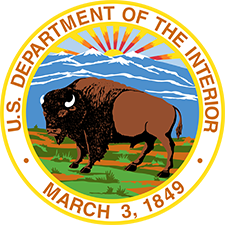Interior Executes Water Rights Settlement Agreement with Pechanga Band of Luiseño Mission Indians

Via Office of the Secretary – U.S. Department of the Interior
WASHINGTON – U.S. Secretary of the Interior Ryan Zinke and Mark Macarro, Chairman of the Pechanga Band of Luiseño Mission Indians today signed the Pechanga Water Rights Settlement Agreement (Agreement), formally executing a Congressionally authorized pact that protects the Pechanga Band’s access to groundwater in the region and provides the tribe with more than $30 million in federal funding to pay for water storage projects.
The Agreement quantifies the water rights claims for the Pechanga Band in Southern California’s Temecula Valley, which had been pending in an adjudication dating back to the 1950s; resolves potential liability for both the United States and other parties; and establishes a cooperative and efficient water management regime involving Pechanga and local agencies.
“The Federal Government has a critical responsibility to uphold our trust responsibilities, especially Tribal water rights,” Secretary Zinke said. “This is why we are continuing to work on Indian Water Settlements with Tribes, States, and all water users to ensure there is certainty for all and an opportunity for economic development in local communities. As a former State Senator and Congressman who helped usher the Blackfeet compact through to fruition, I understand all too well the hard work and enormous struggle that goes into making these important water rights settlements possible. I congratulate all of you for your perseverance, dedication, and commitment to making this settlements happen.”
“The Pechanga Band has tirelessly pursued the quantification of its water rights and, through negotiations, engaged its neighbors in a multiyear process of building mutual trust and understanding,” said Pechanga Chairman Macarro. “Generations of tribal leaders have fought from the courts to Capitol Hill to protect this vital resource for future generations. This settlement agreement benefits all of the parties by securing adequate water supplies for the Pechanga Band and its members and encouraging cooperative water resources management among all of the parties.”
Zinke commended the congressional sponsors of the Settlement Act legislation, saying they “fought to bring these settlements across the finish line.” The agreement – introduced by Rep. Ken Calvert, (R-Corona) – settles competing claims involving the Rancho California Water District and the Eastern Municipal Water District, which both draw from the large aquifer in the region that stretches 750 square miles from Southwest Riverside County to north San Diego County .
“For the tribe, local community, and the many federal employees who have contributed to these settlements, seeing these agreements signed is the culmination of years of dedication and hard work. I think we all recognize that this is just the start of the journey towards settlement finality,” Zinke said.
“The Pechanga Band of Luiseño Indians, as well as all of the parties to this settlement, deserve to have some certainty on the future of their water supply,” Rep. Calvert said. “I’m grateful we have been able to enact the settlement and ensure all of the stakeholders in the Santa Margarita River Watershed can better shape their future.”
Interior is in the initial stages of implementing the Settlement Act, which was enacted as part of the Water Infrastructure Improvements for the Nation Act (P.L. 114-322) in 2016. The Departments of Justice and Interior have an established protocol for processing settlement agreements for execution.
The Act and Agreement establishes the Pechanga Settlement Fund and authorizes the appropriation of about $3 million to be deposited into the fund to construct a storage pond. The legislation also authorizes the appropriation of about $26 million, with about $4 million in construction overrun costs, to build interim and permanent capacity for water storage, according to the Congressional Budget Office.
Also attending today’s event were Pechanga Council Members, including Catalina R. Chacon; Robert Munoa; Russell Murphy; Marc Luker; Raymond Basquez Jr. and Michael Vasquez. Deputy Secretary of the Interior David Bernhard and Associate Deputy Secretary Jim Cason also joined the ceremony.
Water resources and management of scare water supplies are central concerns in the Western states. Additionally, in many parts of the West, water resources are now either fully appropriated or over-appropriated. These situations underscore the need for cooperative management of water supplies, and highlight the important role that Indian water rights settlements can play in the West.
###
